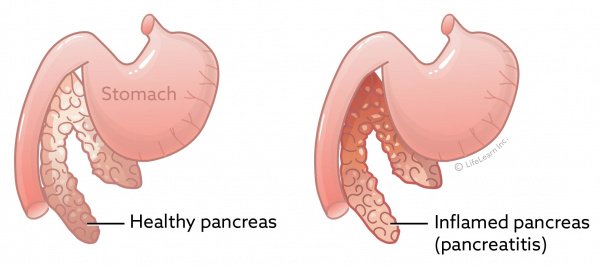
Today I am going to talk to you about pancreatitis and why you as an owner should avoid feeding your pets pork and pork products. Pancreatitis in a very simple definition means the inflammation of the pancreas. The pancreas is an important organ responsible for secreting digestive enzymes. In the case of pancreatitis, the pancreas will inappropriately activate those digestive enzymes in itself rather than in the small intestines which will lead to the inflammation. This is commonly caused by your pet eating garbage or feeding your pet table/fatty scraps, pork especially seems to be a major contributor. Pancreatitis can also occur after any severe trauma or surgery. This condition is more predisposed in Miniature Schnauzers, Yorkshire Terriers, Cocker Spaniels, Dachshunds, and Poodles. Cats can also get pancreatitis although not as common as a canine. Dogs and cats that have an underlying endocrinopathy such as diabetes or Cushing’s disease are at an increased risk of developing pancreatitis.

Dog’s that develop pancreatitis will generally show loss of appetite, vomiting, lethargy, abdominal pain, and/or diarrhea. Cat’s have more unspecific clinical signs associated with pancreatitis which include anorexia and lethargy and (maybe) vomiting. If the pancreatitis is severe enough, the pancreas might go through a process called necrosis, which can be fatal. A veterinarian will normally diagnose this condition based on a physical examination, history, bloodwork, and possible ultrasound imaging if deemed necessary.
Treatment for pancreatitis resolves with fluids and/or supportive care. Dogs and cats with a more severe form of this condition will be placed on IV fluids and will be given medications to help with the nausea and abdominal pain. Prognosis for pancreatitis is good if the signs are mild, however, If the pancreatitis is more severe or if there are other complications involved, then the prognosis can be guarded to poor. So next time you feel like giving your dog a piece of pork chop from the table, be mindful of the underlying risk and consider other alternative table scraps like chicken or carrots.
Dr. Edward G. Brauer III


Recent Comments